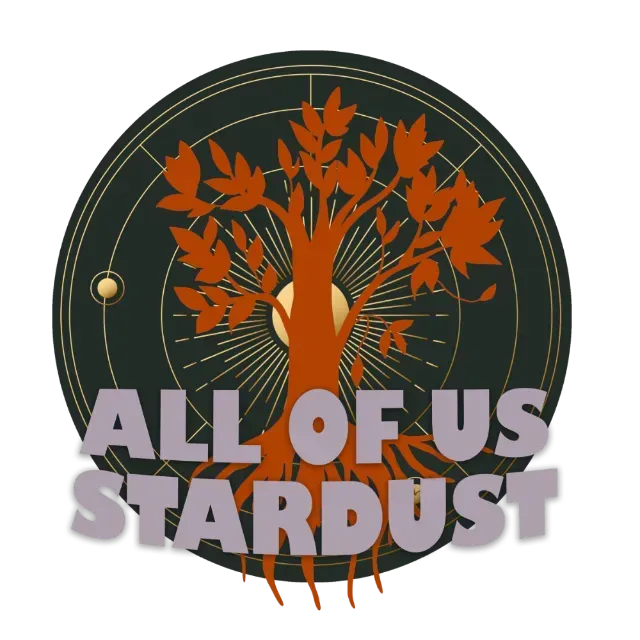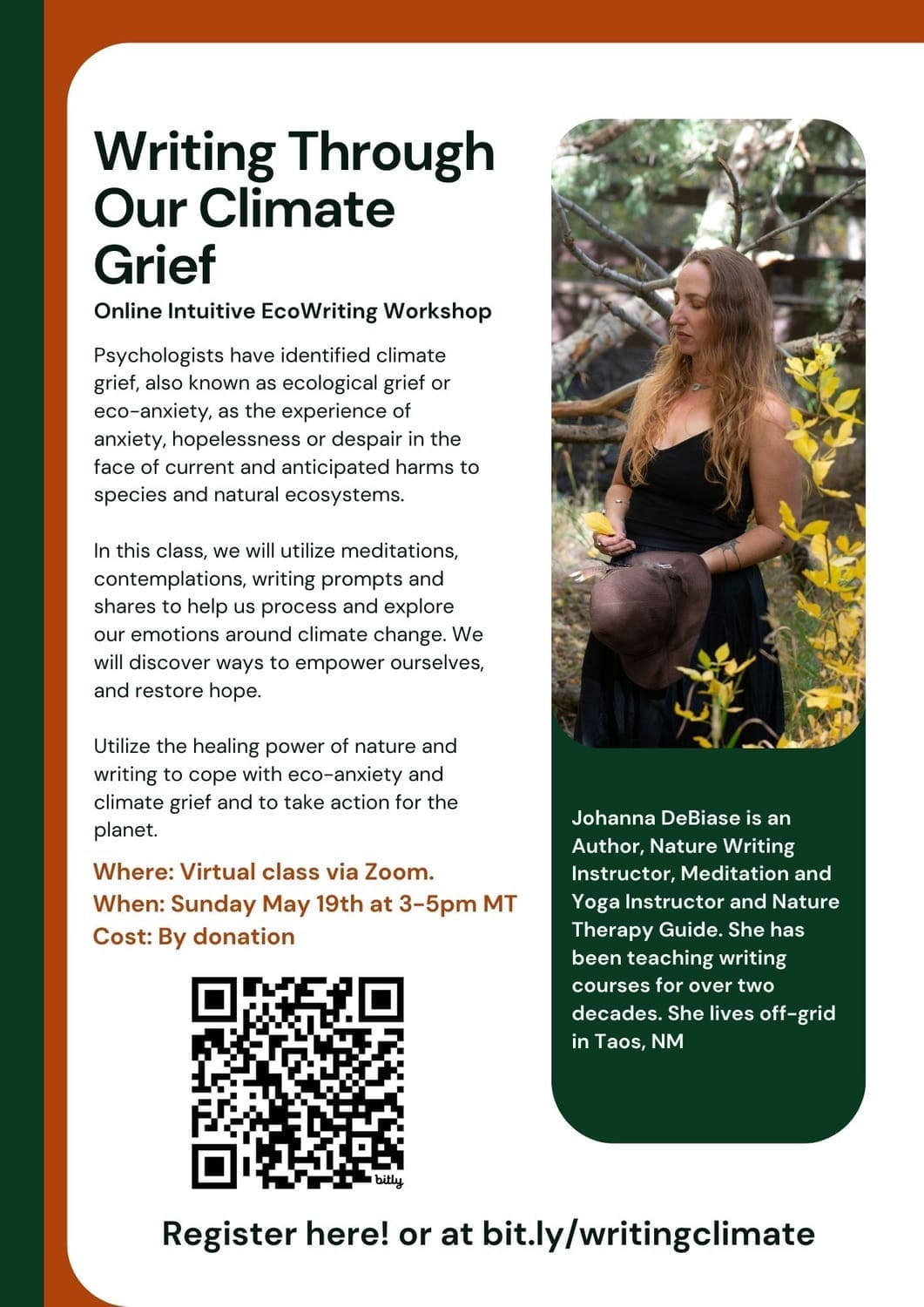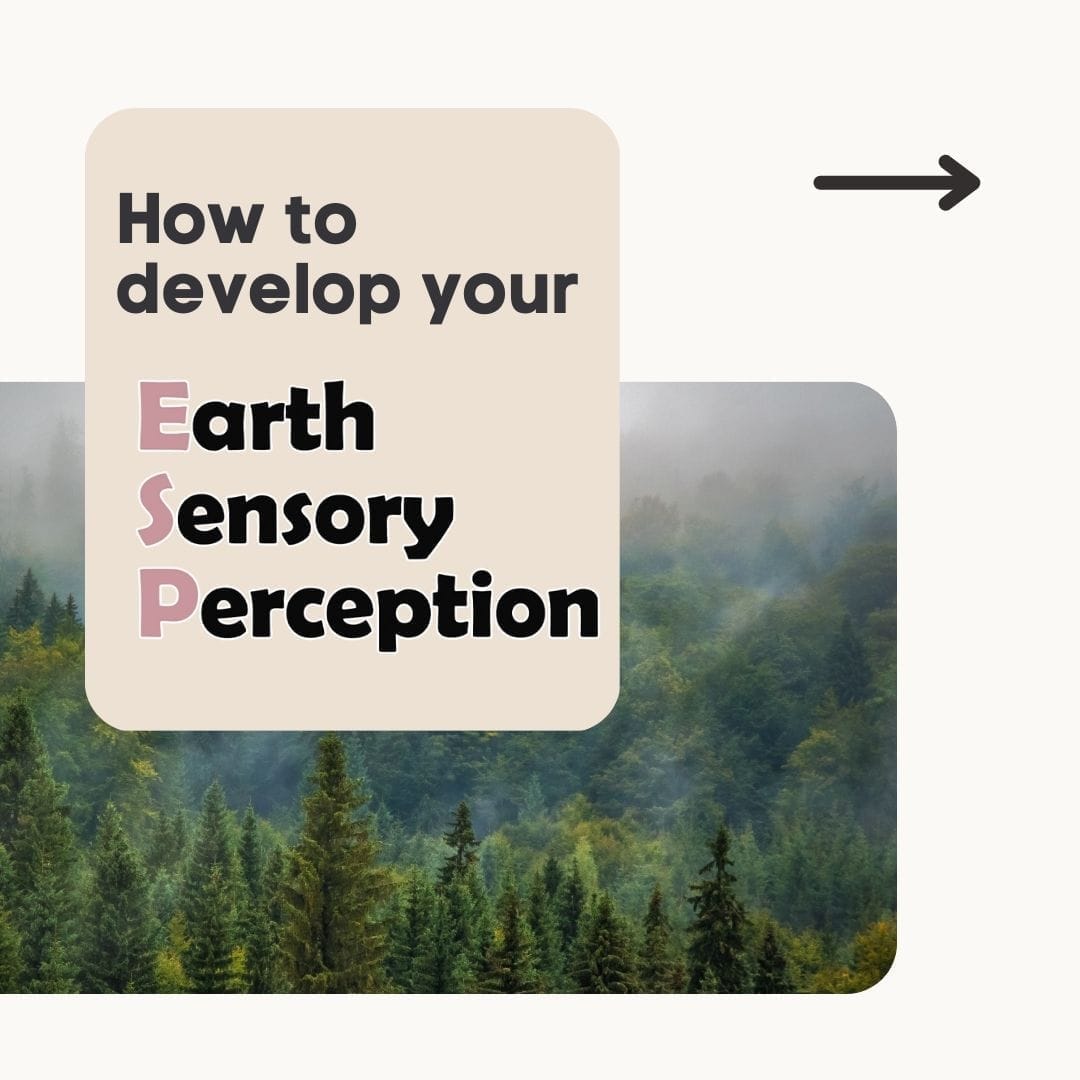Are You Experiencing Climate Grief?
(A version of this letter also appears in Our Uncertain Future, a blog about living off grid.)
Imagine this, it is the year 2050 and you are lucky enough to still be alive. Feeling nostalgic, you bring a young child, perhaps your child or grandchild or great-grandchild, to see the place where you grew up in California. The two of you stand holding hands at the top of a three-story tall floodwall. You are looking down at the coastline where tremendous waves crash with intimidating force against the wall and as they recede, you can make out the ruins of cement buildings that were once beachfront hotels. You turn to the child and say, “We used to watch the blue whales migrate through here in the spring.”
“What are blue whales?” the child asks. You sigh and look down at your feet disappointed, knowing they will never see more than a picture of a whale.
“They used to be the largest mammal on Earth. Beautiful, peaceful, gentle giants that sang songs to the sea and lived for 90 years.”
“What happened?”
You want to say, “We killed them all,” because you know in your heart that is the truth, but you can’t say that to a little child. You soften your words, “They lost their habitat due to climate change and we didn’t act quickly enough to save them.” You wipe your eyes and hope the child doesn’t notice.
Turning away from the thrashing sea, your mind surges with memories of snorkeling through colorful reefs in the gentle waves amongst sponges, clown fish, crabs, sea urchins, dolphins, starfish, mollusks, yellow tangs, and sea turtles—all gone now.
As you hike back to where you parked, you pass a lovely meadow of moss, ferns, baby alders and wildflowers growing from charcoaled debris of old-growth forests. You smile recalling how you used to play in those forests as a child, about the same age as the one who walks with you now.
No one lives here anymore. The wildlife that survived the megafires struggled to find habitat amongst the spread of housing developments and climate refugee camps as viruses amongst them increased, killing off those that remained. The only “wildlife” you see nowadays are in your parks and backyard --coyotes living off sewer rats and disease-infested deer wandering amongst picnic-goers, begging for scraps. You recall the black bears, elk, wolves and mountain lions of your youth that brought glee and fear to anyone who was lucky enough to catch a glimpse of them among the trees. Now, you only see them in zoos.
You and the child buckle into your solar powered car and you consider how grateful you are for this new technology, but with regret that it came too little, and too late.
As you read this tale, check in. How do you feel? What emotions are stirring for you? Where do you feel them in your body?
Does your heart start to race or does your stomach churn? Do you feel hopeless or powerless? Do you feel deep sorrow? Is your heart breaking? Are tears welling up as they did for me when I was writing it? If so, you’re not alone. Many people struggle with what is called eco-anxiety or climate grief. Psychologists have identified climate grief, also known as ecological grief or eco-anxiety, as the experience of anxiety, hopelessness or despair in the face of current and anticipated harms to species and natural ecosystems. Long-term effects include panic attacks, irritability, weakness and sleeplessness.
In my opinion, if you aren’t experiencing eco-anxiety, then you’re doing a great job of compartmentalizing and turning a blind eye. And even if you don’t think you’re experiencing it, the effects might still be showing up subconsciously in ways you aren’t even aware of.
In 2021, the United Nations Intergovernmental Panel on Climate Change (IPCC) reported that a certain amount of global warming is locked in and irreversible. The global temperature has already reached 1.1 degrees Celsius (33.9 degrees Fahrenheit) above pre-industrial levels.
Within the decade, global temps are 50% likely to rise to 1.5 degrees Celsius (34.7 degrees Fahrenheit), also referred to as the tipping point of climate change. The tipping point is a critical threshold. Once we cross it, an irreversible loop with cascading effects will take hold of our planet, shifting life on Earth as we know it. Our climate system will transition from one equilibrium state to another. The resulting effects will be large-scale.
At the tipping point, 70-90% of coral reefs will be destroyed, the frequency of wildfires will increase to a magnitude of 8.6 (out of 10), and global sea levels will rise one foot (0.3 meters).
Sometimes, I feel like Chicken Little, running around screaming, “The sky is falling,” but no one is listening. People are still impulse buying viral plastic goods on TikTok, toasting over Brazilian filet mignon and bragging about their gas-guzzling Bugatti, as we continue to fight wars all over the globe with catastrophic carbon footprints. I get so angry. I want to yell, “Wake up, people! Do something! Stop with this nonsense.”
I know this is my climate grief screaming.
When I’m not feeling angry, I’m feeling guilty. When I think of all the vegetables I’ve bought wrapped in plastic, all the airplane flights I’ve taken across the globe, all the fast fashion I’ve purchased, and all the paper I’ve wasted over my lifetime, I feel like such a fool, going along with the status quo even though I know better. Guilt is yet another common aspect of eco-anxiety and climate grief.
Climate grief has the potential to spin us into a sense of hopeless despair and inaction. But if we can acknowledge our eco-anxiety and the resulting symptoms, we can transform the negative feelings into the motivation to take action.
This is my plea to you to process your climate grief, work through your eco-anxiety, and find ways that you can make a difference. You are not alone. Nature teaches us that the smallest actions can have huge impacts. Without bees, nutrition for all of humanity could be destroyed because one little insect has that much impact. Be like a bee and pollinate the world with change for the better. Take small steps and feel how they have a great impact on your wellbeing and the world.
For example, if you refrained from eating a pound of beef this week, you would save 2,500 gallons of water and 32 pounds of carbon emissions. If you bought your next outfit second hand or from a sustainable company, you would save 2,000 gallons of water from one pair of jeans, plus decrease toxic waste and your carbon footprint. Though it varies from car to car, if you drove 30 miles less this week, you would reduce carbon emissions by approximately 12,000 grams. The little things add up.
Another powerful impact you can have on climate change, is to spread the word, inspire others to make change and feel empowered. One way to do this is through writing.
JOIN US Sunday, May 19th from 3-5pm Mountain Time for the class Writing Through Our Climate Grief, part of the Intuitive EcoWriting Workshop Series.
In this class, we will utilize meditations, contemplations, writing prompts and shares to help us process and explore our emotions around climate change. We will discover ways to empower ourselves and restore hope. Utilize the healing power of nature and writing to cope with eco-anxiety and climate grief and to take action for the planet.
Register here for more information.
Our family’s biggest concern in that moment was whether or not the clouds would part long enough for us to see the totality. In the minutes leading up to the big event we watched through our special viewing glasses as the moon slowly moved in front of our closest star, creating a crescent sun. At times it disappeared behind heavy storm clouds and reappeared again with a cheeky wink. When the moment finally arrived, as we removed the protective lenses from our face, the clouds thinned and briefly dispersed giving us a couple of illuminous minutes of totality.
If you haven’t experienced the totality before, you might think that what’s extraordinary about it is being able to see the corona of the sun, the ring of fire circling the silhouette of the moon. But that’s not exactly it, although that is very cool to see.
What’s most amazing is the way that the world goes dark in the middle of the day. The sun disappears except for its fiery sphere and the day turns a new light, not quite that of dusk or of pre-dawn; it is a light all its own, indigo, gray, and eerily elusive. The difference between Dallas and the middle of nowhere Wyoming was that in the city, we could see the building lights turn on across the lake and the airplanes light up in the sky. We could see a planet in the middle of the day. The bees stopped buzzing and birds returned to their perch. A quiet transcended momentarily before humans began shouting with jubilation.
When the young man yelled, “Totality!” I felt it deeply and could not help but scream it too. “Totality!” I shouted at the sky. I felt perfect and exactly where I was meant to be, aligned and whole. My breathing deepened and filled my chest with elation.
Why would an eclipse make me feel this way? Is it cellular, neurological, epigenetic, or cosmic consciousness? Is it the exhilaration of novelty? Is it the recognition in that one celestial moment of my infinite totality?
Witnessing the eclipse brings human existence into perspective, reminding us of how small and insignificant we are, a humble and yet enlightening viewpoint. Instead of the sun being a blinding unobservable light in the sky, it is suddenly a knowable, visible star bringing it into closer relational proximity to us. We become aware that we are part of it all, the whole cosmic dance of existence, the magical realms as well as the bodily, all of it all at once and everything.
As you know, the sun did return to its full luminosity as predicted. In doing so, our bodies relaxed with relief. The world had ended and was reborn again. Life could return to usual, but things were not quite the same as they were before, though none of us could explain why. Ladybugs converged on my daughter, and she let them meander across her fingers and legs. We called an Uber and headed for the airport.
Our flight was not delayed, though it was uncomfortably turbulent. We made it home to an excited dog and woke up early the next day for school and work. Days have passed and the myopic tasks of life accumulated. But every now and then, I stop and remember. Gazing up at the sky, I scream, “Totality!” and it still feels really good.
Interested in learning more about animism and nature communication?
Categories
Subscribe
Dive into the heart of nature with our weekly newsletter with nature writing that reconnects you to the earth's wonders. Plus, stay updated on events designed to bring our community closer to the natural world.
Created with © systeme.io






